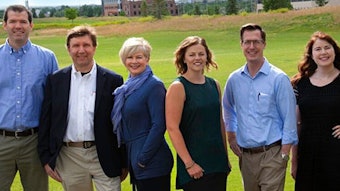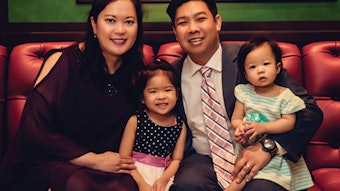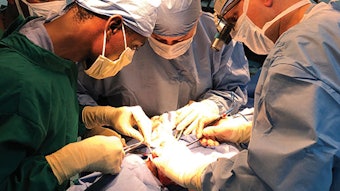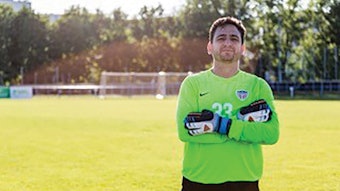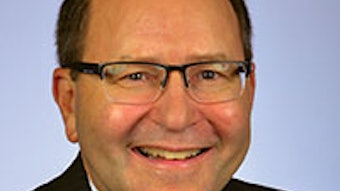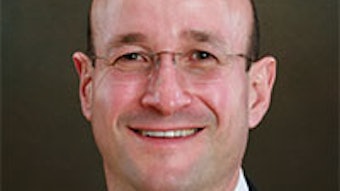Opinion – Otolaryngologists: Masters of hearing health
In June 2018, Beck et al. published an article proposing that audiologists perform dementia screening.
Robert T. Sataloff, MD, DMA, FACS
Professor and Chairman, Department of Otolaryngology – Head and Neck Surgery; Senior Associate Dean for Clinical Academic Specialties; Drexel University College of Medicine, Philadelphia, Pennsylvania
With the concurrence of the Council of the American Society of Geriatric Otolaryngology
In June 2018, Beck et al. published an article proposing that audiologists perform dementia screening.1 They highlighted their view of “hearing care professionals as gatekeepers,” and stressed that audiologists should be knowledgeable about dementia screening and prepared to be active in the conversation regarding memory issues. Admirably, they advocated referral to clinicians with expertise in dementia. However, this suggested expansion of the scope of audiological practice should be viewed in the context of other attempts at scope-of-practice expansion (in several states) that have proposed giving audiologists the authority to make diagnoses and to eliminate the requirement or recommendation for medical consultation. We would be remiss if we responded to these initiatives merely with resistance, concern for our own practice scope, or even concerns about patient safety. The scope-of-practice debate also should encourage us to re-examine our own skills and training to ensure that all otolaryngologists have and promulgate the knowledge necessary to provide optimal, comprehensive care of patients with hearing and related disorders.
The proposals mentioned above represent one small part of an extremely important issue that we are not addressing as a field as well as we might. George A. Gates, MD, has proposed the establishment of “Auditory Medicine” as one of our disciplines. Both Gates and I have been involved actively in central auditory testing in adults since the 1980s, long before the recent discovery of the correlation between peripheral hearing loss and cognitive function. Central hearing impairment and related issues always have been within the scope of practice of otolaryngologists. In addition, as physicians, we all have had courses in neurological sciences and psychiatry, areas not covered as comprehensively and expertly during standard audiology training. Physicians also have unique training in the otologic consequences of systemic diseases and their treatments; the effects of medications on hearing, balance, and cognition; and the evaluation of polypharmacy in older patients with apparent otologic and/or cognitive impairments. These important topics are not included in audiology training. Dementia, other cognitive impairments, and processing disorders are medical diagnoses. The diagnosis of at least selected central impairments is within our scope of practice, and outside the scope of practice of audiologists, who do not have the requisite breadth and depth of training. Collaboration with audiologists is invaluable and is routine in most otologic and neurotologic practices; audiologists should function as members of a medical team whether they are testing hearing, balance, or central function. Abrogating our responsibility to interpret tests to establish medical diagnoses and to determine underlying etiologies would not be in the best interest of the public.
The concern that I mentioned above about otolaryngology’s approach to this problem relates to our residency training curriculum and requirements, and might warrant more intense discussion with the AAO-HNSF and American Board of Otolaryngology–Head and Neck Surgery (ABO-HNS). As an example of the kind of issues we face, audiologists tried recently to introduce legislation in Pennsylvania that would effectively have defined hearing tests as being solely within the scope of audiologists’ practice. Most of us in otology agree that physicians should be permitted to perform a hearing test if they choose to do so, and that testing hearing is and should be within our scope of licensure. The proposed law would have challenged that. We also should be able to perform and especially interpret central auditory testing and other cognitive screening that we deem to be within our purview; and physicians should retain the exclusive responsibility for assigning any medical diagnosis, and certainly diagnoses as important as hearing loss, central auditory disorders, and dementia. If otolaryngologists are to continue to have a credible basis on which to assert that performance and interpretation of auditory and related testing is within our scope of practice (even if we choose to delegate performance of tests to audiologists or other professionals much of the time), then we should document consistently that our physicians have been trained during residency to perform and interpret such testing. It is incumbent upon each of our training programs and the ABO-HNS to review the training in each of our residencies to be certain that every otolaryngologist is well-versed in how to perform an audiogram, VNG, ABR, and other otologic tests, and that every residency graduate has performed supervised tests and interpreted them accurately. Moreover, those competencies should be documented as meticulously as we document surgical cases; and auditory medicine knowledge should be represented well on Board examinations, documenting further that these activities are part of otolaryngology. If audiologists succeed in having the privilege to perform tests for hearing, balance, and perhaps some aspects of cognition designated exclusively to them, then that is going to make it much easier for them to assert that they should be interpreting the tests and rendering diagnoses.
We need to document well how we address the diagnosis and treatment of disorders of the ear and related structures within our specialty, and within our training programs. If we allow training deficiencies, or insufficient documentation of competency, in performance and interpretation of tests of the ear and related structures (including the brain), those shortcomings are likely to become the root cause of our loss of control of patient care. Since no one but a physician has our depth of knowledge and understanding, this shift in scope of practice toward non-physicians would not be in the best interest of the public. It is time to review and enhance (where necessary) our residency training requirements for performance and interpretation of tests of hearing and balance, and ideally of facial nerve, auditory processing, cognition, and other neurotologic functions, as well. We need not only to think of ourselves as masters of comprehensive hearing health, but also to be sure that we really are masters.
References
- Beck DL, Weinstein BE, Harvey MA. Dementia Screening: A Role for Audiologists. Hearing Review 2018;25(7):36-39.




